For the first time in Nevada history, more women than men are at the helm of the state’s highest court.
The two newest Nevada Supreme Court justices, both women, were sworn in Monday, giving women a 4-3 majority on the court.
“It’s about time,” Miriam Shearing, the state’s first female Supreme Court justice, told the Las Vegas Review-Journal. “I think that Nevada citizens are realizing that women can be just as effective — if not more so — as men in high positions in the legal profession. I’m very gratified to see it.”
Shearing served on the high court from 1993 until her retirement in 2005.
The new group took the bench for the first time Tuesday to remarks from Chief Justice Mark Gibbons, who noted that it was “certainly a historic day.”
“On my left here at the end is Justice Abbi Silver, and on my right is Justice Elissa Cadish,” Gibbons said, introducing the court’s newest members. “It’s a pleasure to have both of them join the court.”
Gibbons also recognized Justice Lidia Stiglich for winning her race in November, securing the seat that then-Gov. Brian Sandoval appointed her to in 2016.
“We’re glad to have her back for a full six-year term now,” Gibbons said. “With that background, we’ll go ahead and get started on today’s hearings.”
Historic moment
After Gibbons’ remarks, it was business as usual in the Las Vegas courtroom — aside from a few familiar faces in the gallery.
There was Cadish’s husband, Howard Beckerman, snapping photos with two different cameras hoisted around his neck. And there was the justice’s 81-year-old father, Robert Geteles, who flew in from New Jersey to witness the historic moment.
Geteles said Cadish’s mother died in 2016, “so she couldn’t be here to share in the joy of this.”
He had two words for his daughter: “Very proud.”
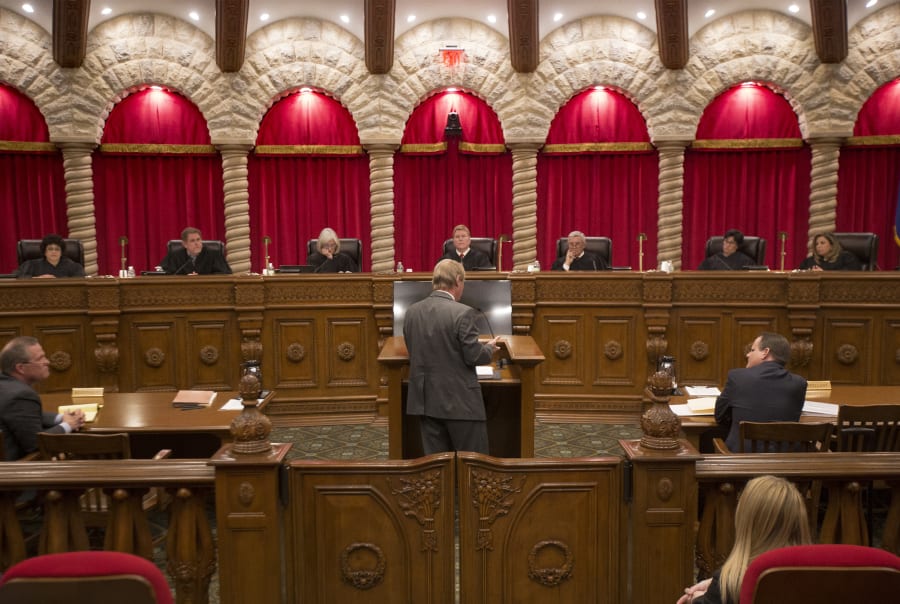
District Judge Douglas Herndon also attended. He sat next to his daughter Kaitlyn, 21, who was home from college on winter break. She previously externed for Justice Kristina Pickering, who was elected in 2008, and was “thrilled” about the court’s female majority.
Herndon, who is a father of only daughters, said the majority was “not just historic, it’s long overdue and really, really neat to be able to have great female role models in the law like that.”
“My younger daughter was mad because she’s in high school, so she didn’t get to come,” he said.
‘Intellectual giants’
While the newest group of justices marks a milestone in Nevada, the state joins roughly a dozen others in the U.S. that have a female majority on their high courts.
Nationally, women account for about a third of judges at any level, Connie Pillich, executive director of the National Association of Women Judges, said.
In a statement, the organization said it was “extremely pleased” to learn of the court’s first female majority.
“NAWJ believes that the public’s trust and confidence in the justice system is enhanced when the judiciary mirrors the diversity of the communities it serves,” the statement read. “Having a fair representation of women on the Nevada Supreme Court is a terrific step in the right direction.”
District Judge Valerie Adair, who is familiar with each of the justices, told the Review-Journal she was elated about the majority, but she said it was important not to attribute it to “The Year of the Woman.”
“They’re all really qualified,” Adair said. “They deserve to be there.”
Retired Washoe County District Judge Janet Berry shared the sentiment, referring to each of the justices as “intellectual giants.”
“I rejoice not because they are women but because I know these women,” Berry said. “They are the best of the best. They are excellent lawyers who will serve our citizens with distinction and with excellent ability. We are blessed.”
Different backgrounds
Though the new majority brings a level of diversity the court has never seen, Anne Traum, a professor at UNLV’s Boyd School of Law, also noted that the female justices have “very different backgrounds.”
Pickering was a powerhouse civil litigator at a private firm before taking her seat on the Supreme Court in 2009. She owns a small ranch in central Nevada with her husband and enjoys long-distance running.
Stiglich was a tenacious trial lawyer who served as special counsel to then-Lt. Gov. Brian Krolicki before becoming a district judge in Washoe County. Her appointment to the high court made her the state’s first openly gay justice.
Silver, a former NBA cheerleader who once wanted to be a dancer, was a dogged prosecutor before she went on to serve as a judge at every level of the state judicial system, ultimately securing her seat on the high court.
And Cadish worked as a skilled commercial litigator with a background in employment law before her appointment to Clark County District Court in 2007 — a seat she held until her successful 2018 bid for the Supreme Court.
“I think anytime you have this kind of personnel change on the court, the court kind of reinvents itself,” Traum said. “Each are going to bring their own experiences into the courtroom.”
Traum also said the new majority suggests there is a strong pipeline of qualified women who are rising in the ranks, made possible in part by the pioneering women who came before them.
“With this precedent, I’m sure that there will be more women vying for those positions in the future,” she said, “and seeing that it’s attainable.”
Contact Rachel Crosby at rcrosby@reviewjournal.com or 702-477-3801. Follow @rachelacrosby on Twitter.
Lidia Stiglich
The first time Lidia Stiglich was in a courtroom, she was a child.
Her mother worked as a secretary at a public defender’s office.
“So that’s kind of where I grew up,” the Nevada Supreme Court justice said.
As a young girl, she spent summers running around the courthouse, watching cases unfold in courtrooms and watching “Perry Mason,” a courtroom drama about a dogged defense attorney. All made a deep impression.
“And I kind of stuck with that,” Stiglich said, “and I very much enjoyed it.”
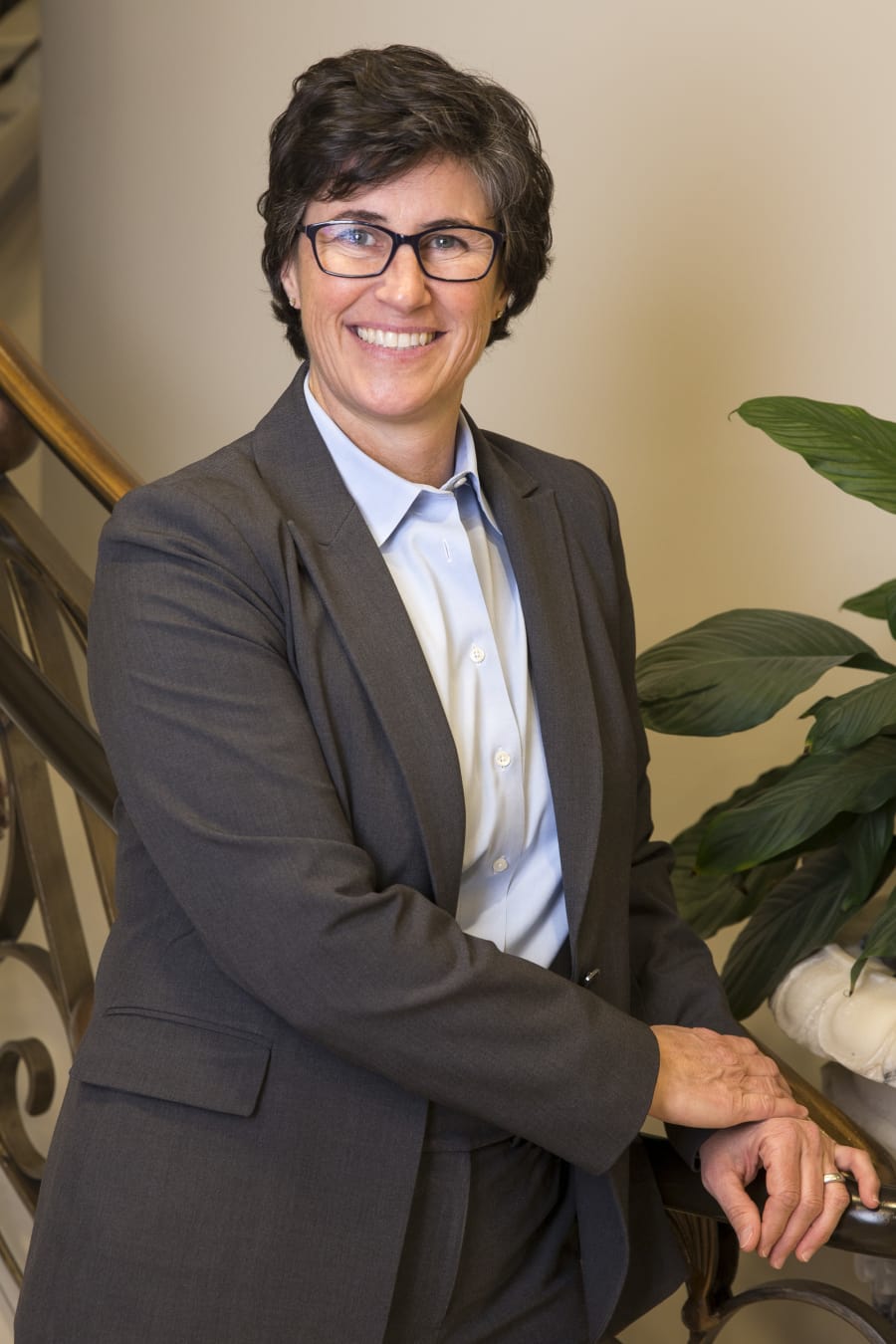
Fast forward to her career on the state’s high court, and Stiglich, 49, said, “I still pinch myself all the time.”
“Because I feel so privileged,” she told the Las Vegas Review-Journal. “Certainly as a baby lawyer — or if you’re a baseball player, like, that’s ‘The Show.’ It’s surreal sometimes, when I come in and I sit back and I think about it.”
Her time on the bench began in January 2017, after then-Gov. Brian Sandoval appointed her to fill retiring Justice Nancy Saitta’s seat.
When Stiglich was formally sworn in at a Carson City ceremony, Sandoval called her appointment “one of the highlights” of his service as governor.
Her appointment also marked the first time the Nevada Supreme Court had seen an openly gay justice. But the distinction is not something she thinks about.
“That’s just who I am,” Stiglich told the Review-Journal. “It’s still a responsibility, because there’s LGBTQ youth out there, and young women, and young men. And I think it’s important for them to see that you can be out and healthy and happy — in your personal and your professional life.”
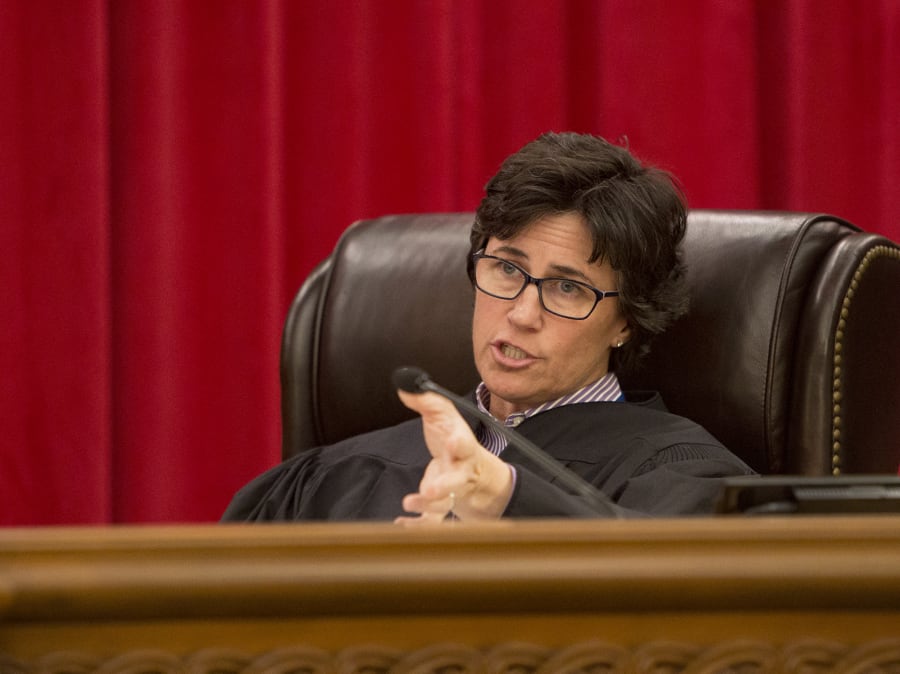
Stiglich had been serving as a district judge in Washoe County before her Supreme Court appointment and said she loved the position.
But when the opportunity arose to serve on the state’s highest court, she recognized that “you can’t pick” when certain doors open, and “you don’t know when the next opportunity is going to come up.”
“So I went for it,” she said. “And it worked out.”
Before serving as a judge, she spent years working as a diligent defense attorney. Fresh out of school at the University of California, Hastings College of the Law, in the mid-1990s, Stiglich first started working as a public defender in San Francisco, which she loved, too.
“But I wanted to keep growing,” she said.
So she moved to private practice, where she tried federal cases in different jurisdictions throughout California. Next, she started a practice in Nevada, moving her family to the Silver State.
It was there, in a Washoe County courtroom, that then-District Judge Janet Berry met Stiglich. She recalled a murder trial in which Stiglich was serving as defense counsel.
“That was the only case where the jurors said afterward, ‘We want to meet her,’” Berry said of Stiglich. “It was like they wanted her autograph.
I still pinch myself all the time.
Lidia Stiglich, Nevada Supreme Court justice
“It is very, very, very rare to have someone in the well of your courtroom who is pathologically prepared and a gifted orator who captivates the entire courtroom,” Berry continued. “That was Lidia.”
When Stiglich considered becoming a trial judge, Berry encouraged her. The two later founded a Youth Offender Drug Court, an alternate sentencing and rehabilitation program for young Washoe County drug users.
“Some of the judiciary can be a little stuffy,” Berry said, “but when it comes to innovation and being part of your community and doing them right — whenever I came to Lidia, she was all in.”
Stiglich also served as special counsel to then-Lt. Gov. Brian Krolicki, advising him on anything from economic development to tourism to cultural affairs.
Krolicki called himself “one of Lidia Stiglich’s biggest fans.”
“She’s an attorney who just appreciates what the law is,” he said. “She does not like to see the law misused and abused. She is a champion for what is right, and when faced with something that is wrong, she has a great compass for integrity and ethics. And she’s just a lot of fun. I feel quite fortunate to have a small part in her marvelous world.”
Looking forward, Stiglich said she is excited to work with the high court’s newest justices — Abbi Silver and Elissa Cadish.
“I have a 14-year-old daughter,” Stiglich said, “and it’s so important to me that young women have role models, or know that they can do anything that they want.”
And she hopes that in her career, a female majority won’t be news anymore, “that it’ll just be old hat.”
Contact Rachel Crosby at rcrosby@reviewjournal.com or 702-477-3801. Follow @rachelacrosby on Twitter.
Kristina Pickering
Nevada Supreme Court Justice Kristina Pickering was among the second class of undergraduate women admitted to Yale University.
She said she encountered few obstacles as a woman in the male-dominated class entering the Ivy League school in 1970.
“I quickly adapted,” the 66-year-old Pickering said. “There was no bias or prejudice. At least if there was, I didn’t feel myself a victim of it.”
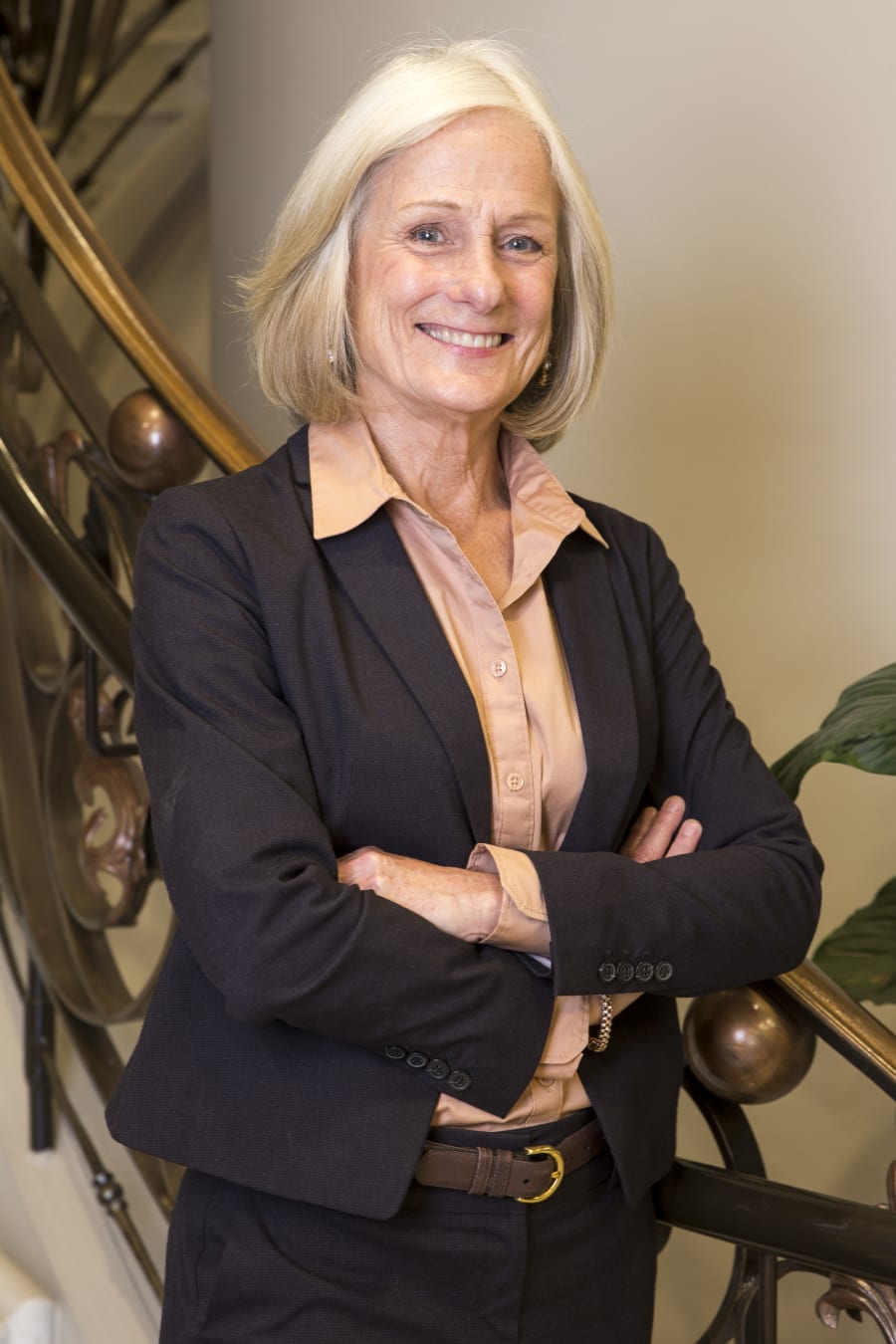
But it was on the campus in New Haven, Connecticut, while an English major, that she developed an interest in the law.
In April 1974, a group of students, including some of Pickering’s friends, were disciplined after a “chanting, stomping, hand-clapping” demonstration against a Stanford University physics professor’s controversial theories.
“That was kind of a turning point for me,” she said. “It led me to think critically about how we are better when we listen to one another and speak. You can expose the fallacies of what others say, but civil discourse is important. That’s what the hallmark of the law is.”
Pickering went on to receive her law degree from the University of California, Davis.
After graduating, she worked as a clerk for then-U.S. District Judge Bruce Thompson in Reno, where she grew up.
She said she tries to emulate Thompson’s “no-nonsense, completely unbiased” demeanor on the bench. Thompson died in 1992.
Las Vegas attorney Don Springmeyer, whose subsequent clerkship with Thompson overlapped with Pickering’s, called Pickering “whip smart, very fair and not possible to intimidate.”
He has worked alongside her under the judge, battled her in court while she worked for the commercial litigation defense bar and argued before her while she sat on the state’s high court.
“She is one of the most prepared and penetrating, questioning justices on the court,” Springmeyer said. “Although she’s unfailingly polite, she does not back down.”
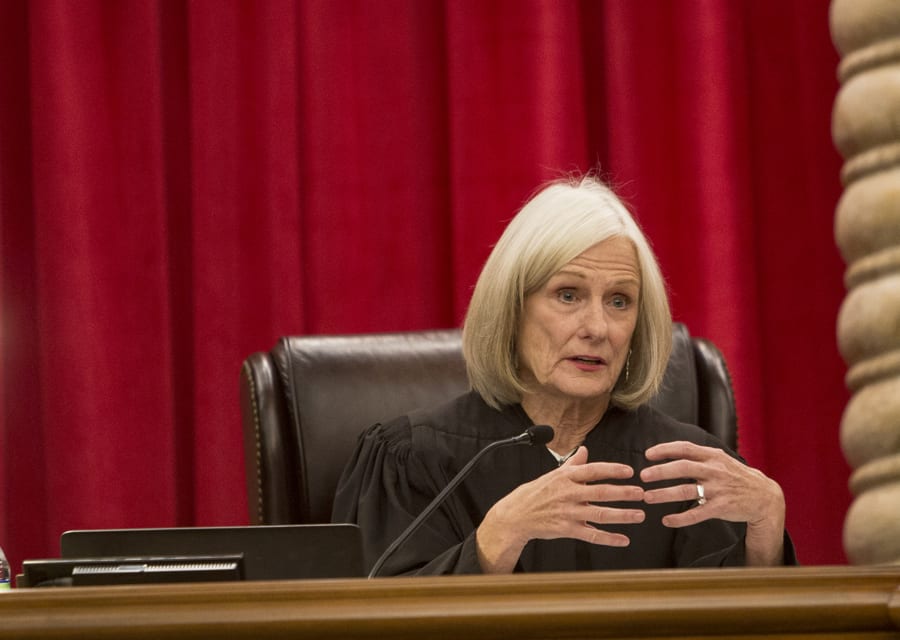
According to a January 2009 story in Nevada Lawyer magazine, Pickering was one of the first 100 women admitted to practice law in the state.
First elected in 2008, she is the only current justice who had not previously served as a judge on a lower court.
Pickering said she attempts to focus on the issues before her, rather than making “expansive pronouncements,” when crafting decisions and dissents.
“You want to decide the case in front of you adequately, but you shouldn’t be venturing into making up rules for other cases that the facts in dispute in your case don’t require you to do,” she said.
The justice said she considers her role a “humble one.”
You want to decide the case in front of you adequately, but you shouldn’t be venturing into making up rules for other cases that the facts in dispute in your case don’t require you to do
Kristina Pickering, Nevada Supreme Court justice
Pickering and her husband, attorney Steve Morris, own about 100 acres in the ghost town of Belmont, the former seat of Nye County, about four hours from Las Vegas.
They helped establish Friends of the Belmont Courthouse to restore the building, which closed in 1903.
“Preserving that has become a real labor of love,” Pickering said.
In 2016, she told the Las Vegas Review-Journal: “It has endured so much neglect. For me, it symbolizes the pioneer spirit of the people who first settled here.”
As chief justice, she helped establish the state’s first Court of Appeals, after voters had repeatedly rejected similar measures. She also established a program that appoints lawyers for unrepresented litigants so their cases may be heard at the appellate level.
Still, she added, “I think we can do better in the way we process cases.”
In her free time, Pickering enjoys long-distance running and doing agility training with her four border collies — Tip, Hart, Zorro and Adele.
Contact David Ferrara at dferrara@reviewjournal.com or 702-380-1039. Follow @randompoker on Twitter.
Abbi Silver
For Justice Abbi Silver, the opportunity to serve on Nevada’s Supreme Court just made sense.
After nearly 14 years of earning her reputation as a dogged Clark County prosecutor, she had served at every other level of the state’s judicial system.
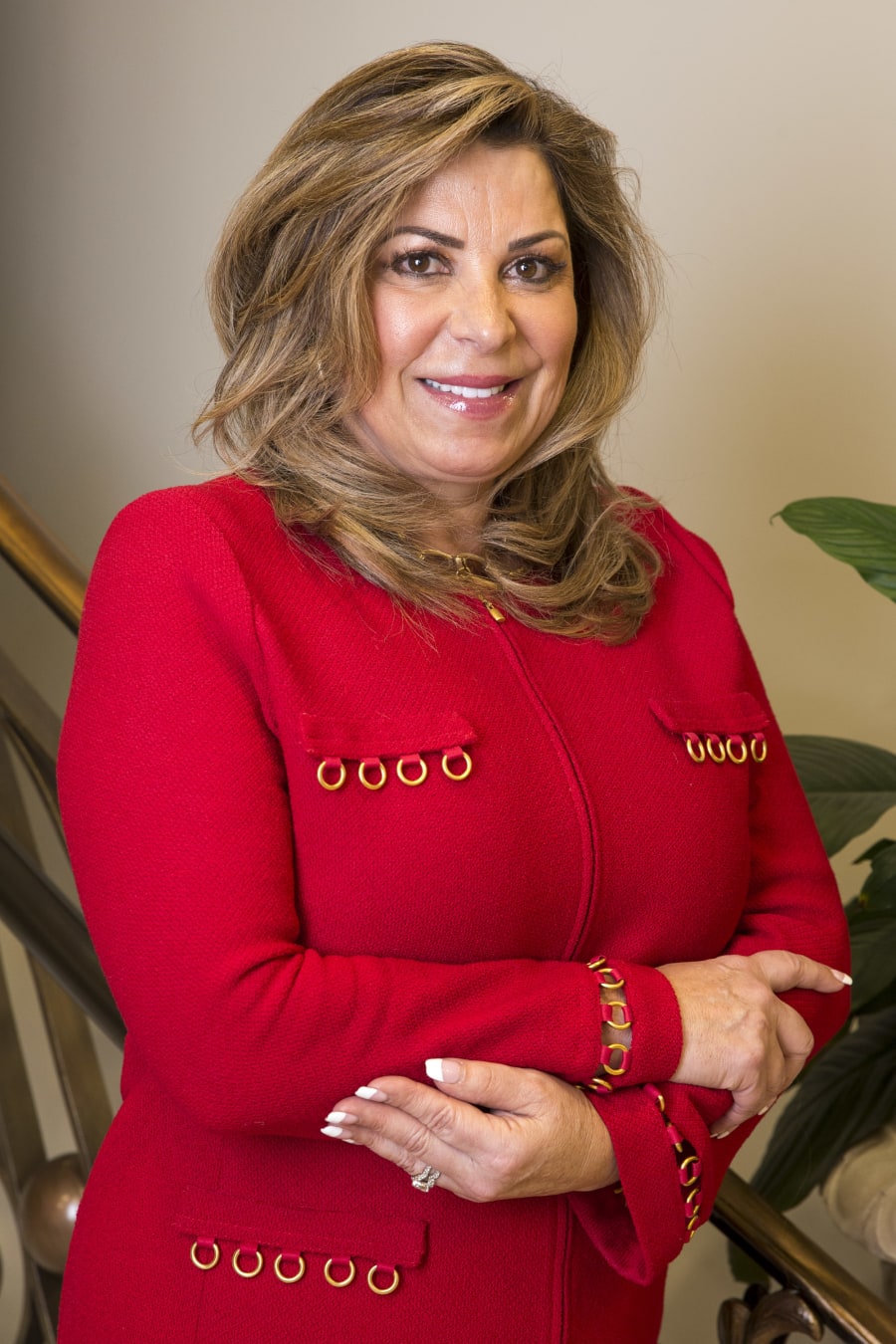
First was her successful bid in 2003 for a seat in Las Vegas Municipal Court, following a failed bid to replace an outgoing Clark County district attorney — her first election experience and her only loss. In 2006, she was elected to Las Vegas Justice Court. Two years later, she won a seat on the Clark County District Court, winning it again in 2014.
Then came the pivotal phone call from then-Gov. Brian Sandoval in December of that year, notifying Silver that he would like to appoint her to the state’s inaugural appellate court.
Silver, 54, considers that appointment one of the greatest honors of her life. She was elected to the seat in 2016, after which Sandoval swore her in as chief judge.
So when two seats opened on the state’s highest court soon after, she took it as a sign that “now’s the time.”
“I mean, there is literally no other step for me to take but this,” Silver told the Las Vegas Review-Journal in December, sitting in her old appellate court office, a thick stack of case files sitting in front of her. “So I took it, and I filed.”
She ran unopposed. But that doesn’t mean securing her seat was a breeze.
Silver vividly remembers the overwhelming anxiety she felt on Jan. 12, 2018, the last day judicial hopefuls could file for candidacy.
As the clock ticked closer to the 5 p.m. deadline, she sat in a corner of her home, holding her dog, shaking in the dark. She didn’t want to go through the stress of another election. But she wanted this seat — the ultimate career achievement — more than anything.
“I was just a mess,” she said.
But when the deadline came and went, she took a call from Justice James Hardesty, who welcomed her to the Supreme Court of Nevada.
“I mean, I cried,” Silver said. “The only other time that’s happened is when a doctor told me I was pregnant. I was happy. Crying happy.”
I think the fact that any attorney can look at me, especially the females out there, and know that it’s attainable — to see a face that looks like their face — it’s important.
Abbi Silver, Nevada Supreme Court justice
Though Silver was stressed, those familiar with her work supposed no one challenged her because no one thought they could beat her.
“Candidly, I wasn’t surprised that she was running unopposed,” District Judge Valerie Adair said.
Adair worked alongside Silver at the Clark County district attorney’s office. And as district judges, their courtrooms were on the same floor.
“I think she’s worked hard for this for a long time,” Adair said. “She’s been in the trenches, and I think she’ll do a great job.”
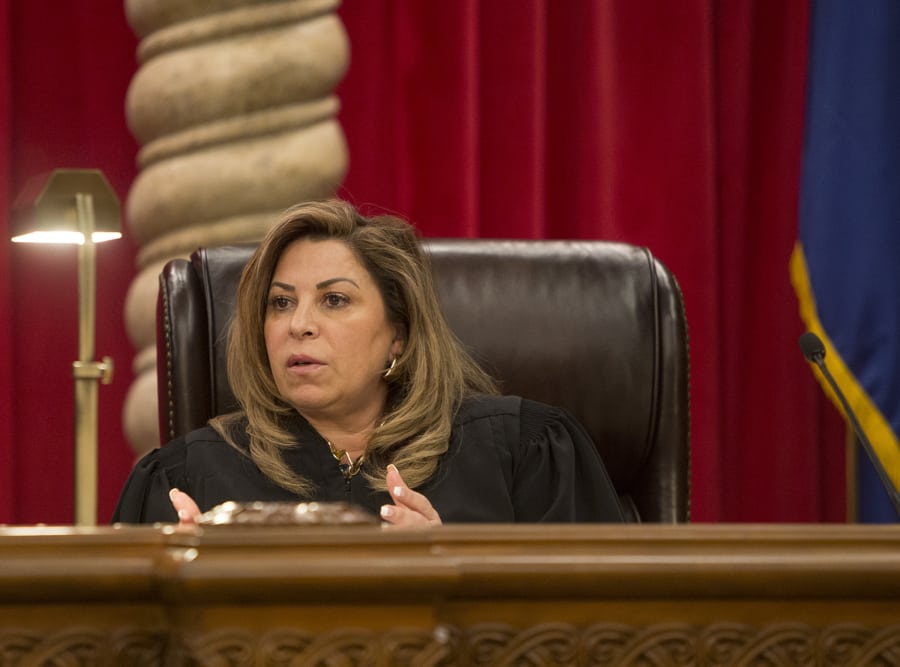
Former District Attorney Stewart Bell, who took office in the middle of Silver’s prosecutorial career, described her as “dedicated, aggressive and successful.”
”I think the fact that she was unopposed in the last election shows that lawyers thought that she did a good job and was qualified for the position,” Bell said.
Silver’s career trajectory didn’t come without hardships. There was her 1989 job interview with the district attorney’s office, in which the men interviewing her asked, “Are you having kids? Do you plan on having kids?”
There was the time she earned a break from search warrant duty one year — a reward for trying more cases than anyone else — only to have a colleague suggest the reward was actually in exchange for a sexual favor.
But she pressed on.
“I don’t think anyone works harder than Abbi Silver,” District Judge Mary Kay Holthus, who also worked alongside Silver as a prosecutor, told the Review-Journal. “She’s extremely committed to whatever she’s doing. “
Silver said being part of the high court’s first female majority weighs heavily on her. The Boulder City native recalled the first time she argued before the court as a young woman in 1990, when all the justices were older men — a “daunting” experience.
“I think the fact that any attorney can look at me, especially the females out there, and know that it’s attainable — to see a face that looks like their face — it’s important,” Silver said. “It’s important to have diversity on the bench that reflects the diversity that’s in the legal profession, which I think we’ve attained as females now, finally. Because I’ve been doing it 30 years, and it finally seems like it’s starting to become more equal. Or equal.”
To any young woman or man out there, she said, “I would say to honestly follow exactly what you want to do, because you can attain it.”
“The biggest thing is not to listen to anybody who tells you that you can’t,” she said.
Contact Rachel Crosby at rcrosby@reviewjournal.com or 702-477-3801. Follow @rachelacrosby.
Elissa Cadish
When Elissa Cadish’s nomination to the federal bench was blocked about six years ago, she found herself digging deeper into her work and focusing her personal time on her teenage son and daughter.
About a year earlier, her then-husband, David Harlan Cadish, had died after a stroke. Suddenly she was raising two teenagers on her own while serving as a Clark County district judge.
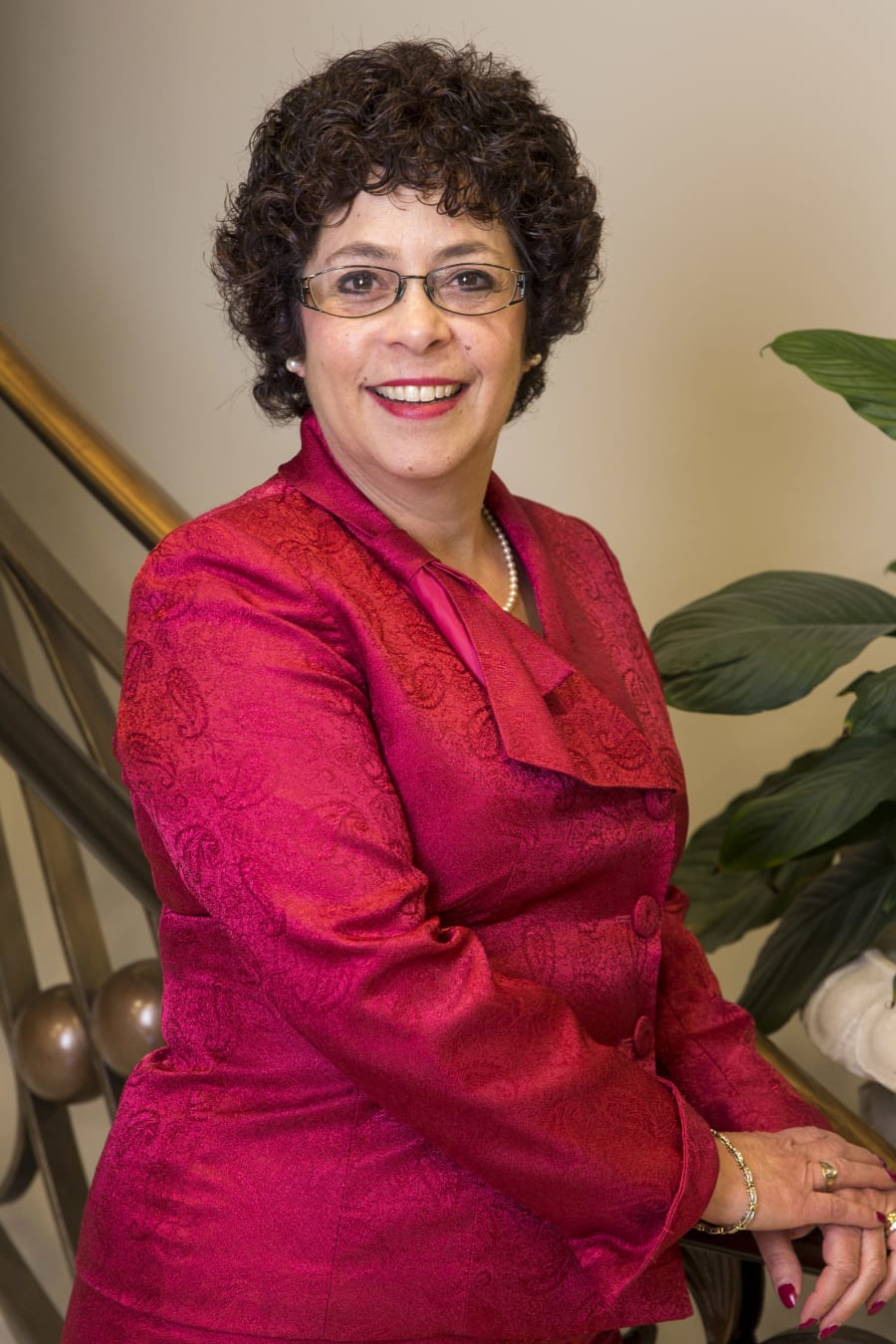
“It was a tough time for me, personally, having some pretty big obstacles put up in front of me,” the recently elected Nevada Supreme Court Justice said in an interview with the Las Vegas Review-Journal. “And I did my best to get through it.”
The painstaking nomination process for the federal judgeship began a few months after her husband’s death. It included vetting from White House counsel and the Department of Justice, a Senate judiciary questionnaire, an FBI background check and American Bar Association ratings.
President Barack Obama nominated her for the seat in February 2012, but she withdrew her nomination about a year later after it was blocked by then-U.S. Sen. Dean Heller, R-Nev.
“Eventually, I came out the other side and started to look ahead,” she said. “I can’t change what happened before, but I can look ahead for what might be a good thing for me to do.”
Cadish, now 54, knew that seats were about to open on the state Supreme Court and decided to pursue a position.
Shortly after withdrawing her nomination for the federal judgeship, she received a message on Match.com from the man who would become her husband, Howard Beckerman. They decided to meet in person at a dinner for the American Israel Public Affairs Committee, where they hit it off.
Cadish recalls later thinking, “Wow, it’s OK to smile.”
“It was like coming out of a fog,” she said. “I’m OK. It’s OK to be happy. I don’t have to feel guilty about being happy in my life.”
Early in her career, after graduating from the University of Virginia Law School in 1989, Cadish worked as a law clerk for then-U.S. District Judge Philip Pro in Las Vegas. Prior to that job, she had never been farther west than Chicago.
“Twenty-nine years later, I’m still here,” she said. “It’s been fun, and Vegas has been great to me.”
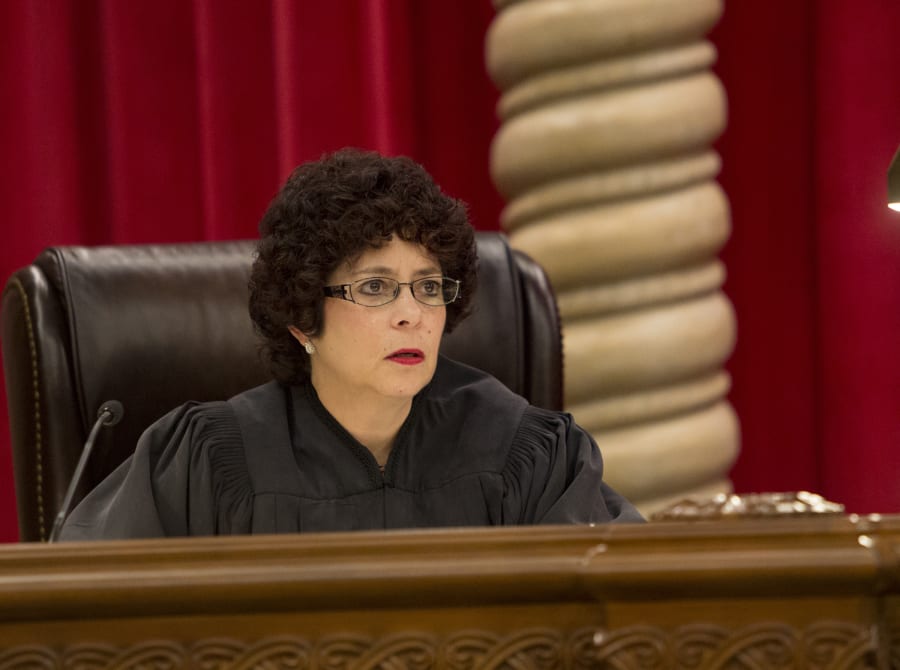
Pro describes Cadish as one of his favorite people, pointing to her advanced legal mind and fairness from the bench. He said he encouraged her to stay in Las Vegas after she finished working for him in 1991.
“I could tell when she came to me as a law clerk that she was going to be a superstar,” he said. “I think she’s going to be a distinguished jurist and a good addition. I’m glad she landed in Nevada and decided to stay. Good thing for the state and good thing for her.”
Maybe out of stubbornness, I was determined to prove you can have it all. You can work at a major firm and be a partner and raise kids and do it. It’s challenging. It’s not easy, but it can be done if that’s what you want to do.
Elissa Cadish, Nevada Supreme Court justice
Cadish said she tried to model herself after Pro, who “was always in control in his courtroom, but without ever being rude or condescending.”
After working for Pro, she delved into private practice, focusing on commercial litigation and employment law, and became a shareholder at the law firm Hale Lane in 2000.
“Maybe out of stubbornness, I was determined to prove you can have it all,” she said. “You can work at a major firm and be a partner and raise kids and do it. It’s challenging. It’s not easy, but it can be done if that’s what you want to do.”
Cadish was president of the Southern Nevada Association of Women Attorneys from 2004 to 2006, and remains an active member in that organization. In the summer of 2007, she was appointed by then-Gov. Jim Gibbons as a district judge.
A self-described “law geek,” Cadish said she has always enjoyed legal discussions and knew at age 10 that she wanted to become a lawyer.
“I remember getting the idea that everyone’s rights have to be represented and have to be respected regardless of who they are,” she said. “That got my attention early.”
Cadish said she enjoys the logical, mathematical-type analysis of legal issues.
“I wasn’t one to shy away if there’s a big pile of documents in a case,” she said. “I’m going to dig through them and make sure I understand them.”
She points to Sandra Day O’Connor, the first woman on the U.S. Supreme Court, as a role model. She hopes that the new female majority on the Nevada Supreme Court inspires others.
“It’s important for everyone, regardless of their backgrounds and experiences, to have role models to look to and know that there are opportunities out there to do all kinds of different things,” Cadish said. “And I think it will help when you see, wow, four women sitting up there with three men. It looks like a realistic possibility, and it’s something to really work toward.”
Contact David Ferrara at dferrara@reviewjournal.com or 702-380-1039. Follow @randompoker on Twitter.













